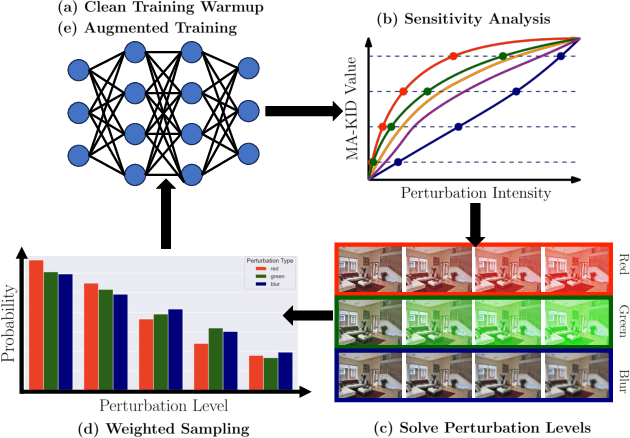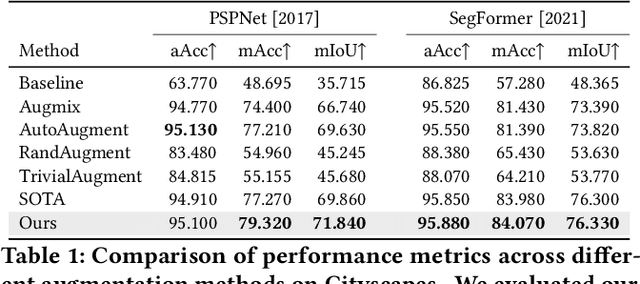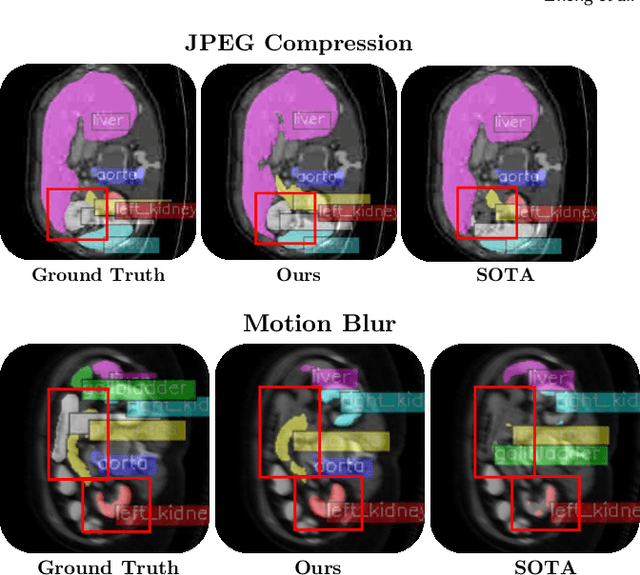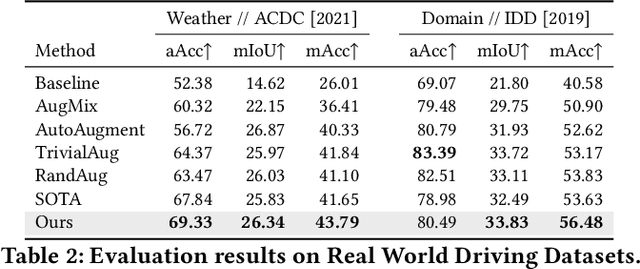Sensitivity-Informed Augmentation for Robust Segmentation
Paper and Code
Jun 04, 2024



Segmentation is an integral module in many visual computing applications such as virtual try-on, medical imaging, autonomous driving, and agricultural automation. These applications often involve either widespread consumer use or highly variable environments, both of which can degrade the quality of visual sensor data, whether from a common mobile phone or an expensive satellite imaging camera. In addition to external noises like user difference or weather conditions, internal noises such as variations in camera quality or lens distortion can affect the performance of segmentation models during both development and deployment. In this work, we present an efficient, adaptable, and gradient-free method to enhance the robustness of learning-based segmentation models across training. First, we introduce a novel adaptive sensitivity analysis (ASA) using Kernel Inception Distance (KID) on basis perturbations to benchmark perturbation sensitivity of pre-trained segmentation models. Then, we model the sensitivity curve using the adaptive SA and sample perturbation hyperparameter values accordingly. Finally, we conduct adversarial training with the selected perturbation values and dynamically re-evaluate robustness during online training. Our method, implemented end-to-end with minimal fine-tuning required, consistently outperforms state-of-the-art data augmentation techniques for segmentation. It shows significant improvement in both clean data evaluation and real-world adverse scenario evaluation across various segmentation datasets used in visual computing and computer graphics applications.
 Add to Chrome
Add to Chrome Add to Firefox
Add to Firefox Add to Edge
Add to Edge